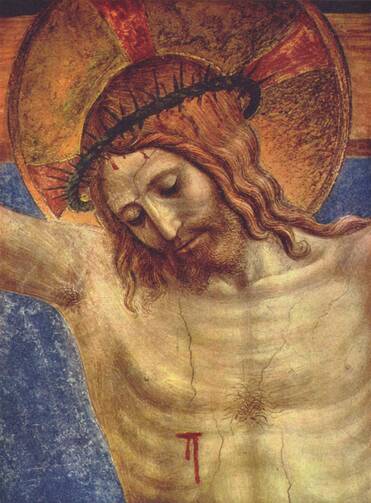He was a few weeks shy of his seventeenth birthday. It was a morning in spring, and he was on his way to a youth rally. As he walked past his parish church, the Basilica of Saint Joseph, on the Avenida Rivadavia, Jorge Borgoglio felt compelled to enter. “I went in. I felt I had to go in—those things you feel inside and you don’t know what they are.”
The details of what happened next didn’t fade for him. They’re recorded in Austen Ivereigh’s biography, The Great Reformer (2014).
Hearing a vocational story is similar to asking someone how he fell in love. You hear the details, but the interior event remains elusive. You can’t watch what happens within the heart. But imagine being enraptured by a beautiful face and then suddenly realizing that it’s looking back at you.
Explaining his own encounter Pope Francis offered a description, if not a definition, of God.
In their interview with Pope Francis, the journalists Sergio Rubin and Francesca Ambrogetti recorded, “He adds that it was not only the ‘astonishment of the encounter’ which revealed to him his religious vocation, but the compassionate way in which God called him—in such a way that, over time, it became a source of inspiration for his own ministry” (34).
The night before he died, Jesus told his disciples, “When I am lifted up from the earth, I will draw everyone to myself.” Saint John adds, “He said this indicating the kind of death he would die” (12: 32-33). In the Fourth Gospel, the book of signs and glory, the visible breaks open to reveal the invisible. Jesus is crucified. The Word of God falls silent on the cross, and, in the stillness of Calvary, Jesus calls men and women to himself.
The Christian experience of grace is cruciform. It has the hue of the Christ. When we suddenly realize that God is present in our lives, when God appears as “the one who goes before,” we recognize the visage. We’ve seen it before, though, until this moment, the silence hadn’t spoken. It’s the love and compassion revealed on Calvary.
Isaiah 52: 13 -53:12 Hebrews 4: 14-16, 5:7-9 John 18:1-19:42








